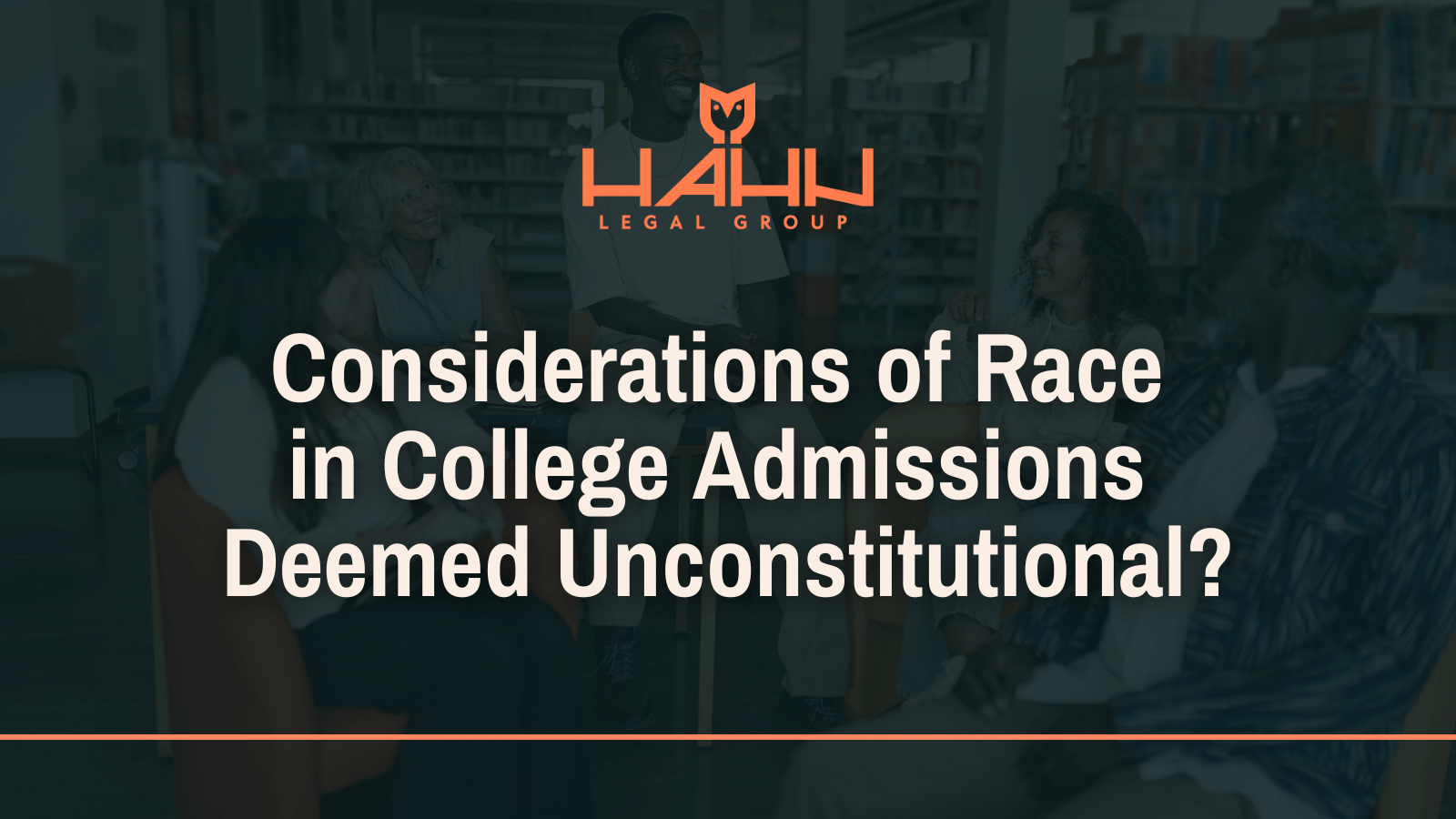
In a landmark decision, the Supreme Court of the United States ruled on using race as a factor in admissions to universities. On June 29, 2023, the Court issued a ruling that has significant implications for how colleges and universities across the country approach diversity and inclusion in their admissions processes. This ruling marks a pivotal moment in the ongoing debate over affirmative action policies.
Understanding the Case of Race in College Admissions:
To comprehend the ramifications of this ruling, it is essential to delve into the specifics of the case Students for Fair Admissions, Inc. v. President and Fellows of Harvard College & Students for Fair Admissions v. The University of North Carolina that was brought before the Supreme Court. In both cases, Students for Fair Admissions, a nonprofit that purposes to defend human and civil rights, filed suit against Harvard and the University of North Carolina (UNC) arguing that affirmative action (admissions policies that consider race) violates Title VI of The Civil Rights Act of 1964 and the Equal Protection Clause of the Fourteenth Amendment.
In the context of college admissions, affirmative action has been used to increase the number of minority students in college universities. It started when President John F. Kennedy signed Executive Order 10925 in response to the Civil Rights Movement, and in effort to pursue racial equality. The purpose behind this Executive Order was to reiterate the government’s dedication to providing equal opportunities for all qualified individuals and to actively enhance initiatives aimed at achieving genuine equal opportunity for everyone.
The Supreme Court’s Decision:
In a 6-3 decision, the Supreme Court ruled that college admissions policies that included race as a factor were unconstitutional. The ruling could be seen as an overhaul of affirmative action policies in the admission processes and disregards years of established precedent in affirmative action.
The Impact on Affirmative Action:
This decision has already sparked a flurry of discussions about the future of affirmative action in higher education. Proponents argue that the ruling upholds the principle of equal treatment under the law, while opponents argue that it undermines efforts to address historical and systemic inequalities.
One of the primary arguments in favor of affirmative action is that it promotes diversity and inclusion on college campuses. Many institutions believe that diverse student bodies enrich the learning experience for all students and prepare them for a diverse workforce. Opponents of the ruling argue that affirmative action is a necessary tool to address historical injustices, such as slavery and segregation. They contend that without these policies, underrepresented minority groups may continue to face barriers in accessing higher education.
While this Supreme Court ruling is significant, it is not the final word on affirmative action. The debate will undoubtedly continue in various forms, both within the legal system and in broader public discourse. Colleges and universities may also revisit their admissions policies in light of this decision.
The recent United States Supreme Court ruling on affirmative action will not impact public colleges and universities in California due to Proposition 209, implemented in 1998, which prohibits admission preferences based on race and gender in state institutions like the Universities of California and the California State Universities. However, the ruling will necessitate private institutions in California to discontinue affirmative action policies moving forward.
The Supreme Court’s recent ruling on affirmative action is a complex and contentious issue that touches on fundamental principles of equality, diversity, and justice. As this case evolves, so too will the debate over how best to address historical inequalities and create a fair and inclusive future. This ruling will undoubtedly play a crucial role in shaping the ongoing conversation about racial equality in the years to come.


